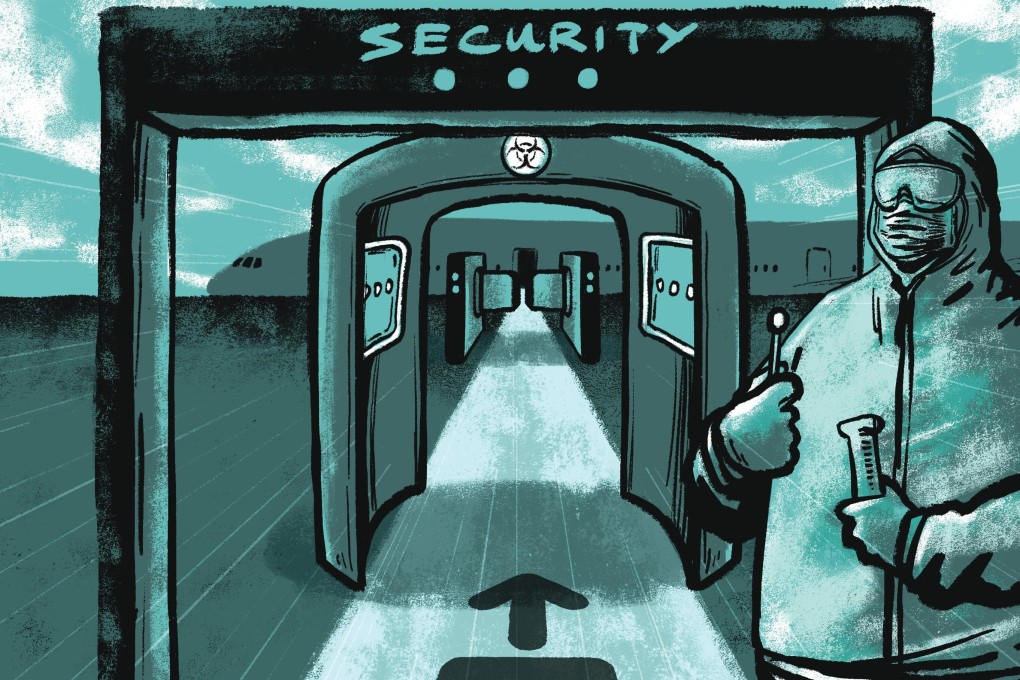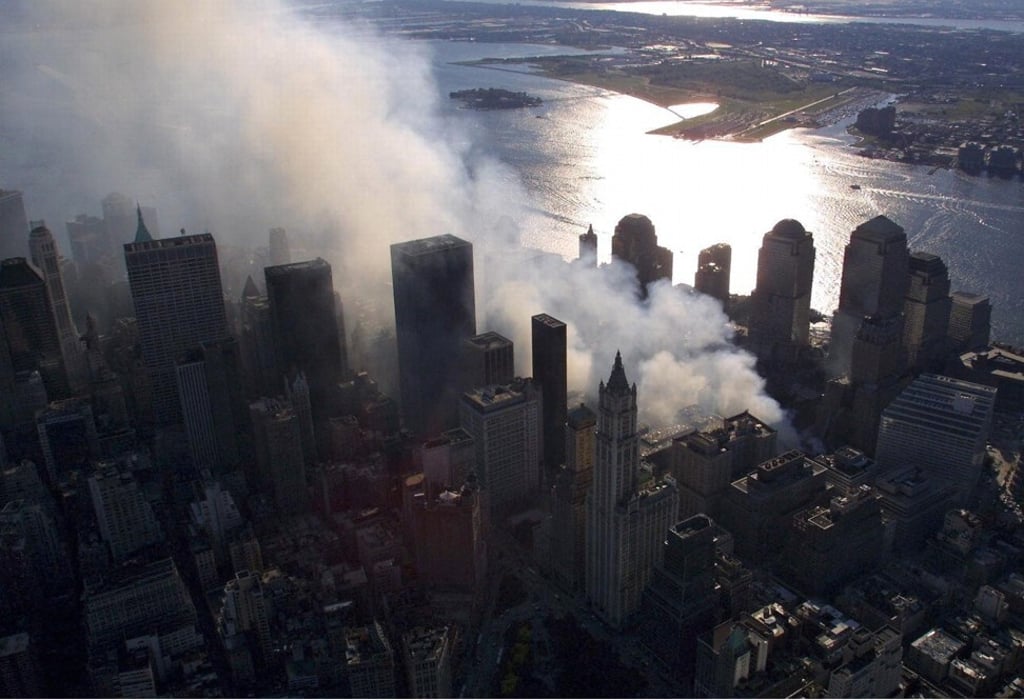September 11 changed aviation security forever. Will coronavirus, bioterrorism and technology fuel new threats?
- The attack triggered a wave of security measures that travellers initially found tedious but have become accustomed to today
- Security measures have continued to evolve, with an analyst saying Covid-19 rules could even deter terrorism as air travel becomes more difficult and costly

The deadly terrorist attacks against the United States on September 11, 2001, prompted an outcry from around the world: “We are all Americans.” Washington’s policies realigned around fighting terrorism and bilateral relationships strengthened or crumbled depending on where other governments stood. In the fifth in a series about the legacy of September 11, Dewey Sim and Danny Lee explore how the event changed aviation and look at the threats the sector continues to face.
On July 15, 2017, staff at the Etihad Airways check-in counter in Sydney airport declined to put through a large, heavy suitcase belonging to a passenger travelling to the United Arab Emirates.
Their decision was based on security rules that were implemented after the September 11 terror attacks in the United States, which included baggage weight, size and shape limitations, and a higher scrutiny on checked luggage contents.
Little did they know, their act helped to foil an Islamic State-linked bomb plot.
The bag, carried by Amer Khayat, contained an improvised explosive device hidden inside a meat grinder. He was arrested upon arrival in Lebanon. His brothers in Australia, Khaled and Mahmoud, were later convicted of covertly planting the bomb in Amer’s bag with the aim of detonating it mid-flight.
About five months before, the US and British governments had banned travellers from certain cities in the Middle East and North Africa from carrying a variety of electronic devices over fears explosives could be concealed and brought onto an aircraft.

